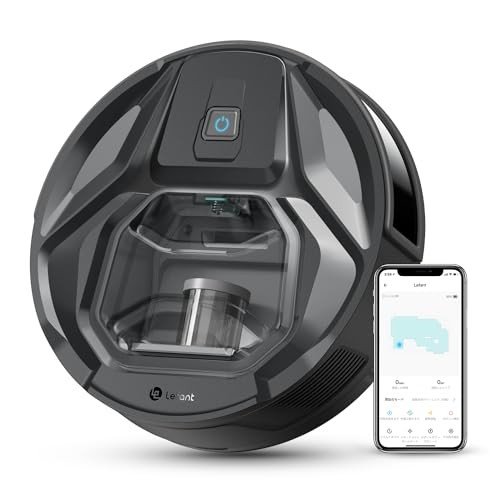The Rise of Autonomous Vacuums: Revolutionizing Home Cleaning
In the age of innovation, household chores are becoming increasingly automated, and among the most noteworthy advancements in this world is the autonomous vacuum. These smart cleaning robots are created to alleviate the drudgery of conventional vacuuming, making them popular among time-strapped homes. This post checks out the development, performance, benefits, and limitations of autonomous vacuums, along with a contrast of some of the leading models on the market today.
What is an Autonomous Vacuum?
An autonomous vacuum, likewise known as a robotic vacuum cleaner, is a small, automatic gadget that browses through your home to clean floorings without human intervention. Equipped with sensing units, cameras, and advanced software, these vacuums can identify challenges, prevent stairs, and optimize cleaning courses. They generally run from a rechargeable battery, going back to their charging stations when their power is low or when cleaning jobs are finished.
Secret Features of Autonomous Vacuums
Smart Navigation:
- Utilizes sensors and algorithms to map the environment.
- Can browse intricate layouts and prevent challenges.
Scheduling:
- Allows users to set cleaning times.
- Can run when your home is empty, making sure minimal interruption.
Connection:
- Many designs connect to Wi-Fi, enabling app control and combination with clever home systems.
- Users can tailor settings, check cleaning status, and get notifications through mobile applications.
Suction Power:
- Varies between designs; some offer adjustable suction settings for different floor types.
- High-end designs include powerful suction capable of selecting up pet hair and deep dirt.
Floor Type Adaptability:
- Capable of cleaning carpets, wood, tiles, and more.
- Certain models concentrate on customized cleaning for several surface areas.
The Advantages of Using Autonomous Vacuums
1. Time-Saving
One of the most substantial advantages of autonomous vacuums is the quantity of time they save. Instead of spending hours pressing a traditional vacuum, homeowners can set robotic vacuums to tidy while they are taken part in other activities.
2. Constant Cleaning Schedule
With the capability to arrange cleansings, these vacuums guarantee that spaces are frequently cleaned up, leading to a cleaner home in general. Routine cleaning assists preserve indoor air quality, especially for families with allergies or asthma.
3. Smart Home Integration
Numerous autonomous vacuums can be incorporated with wise home systems for seamless operation. Property owners can control their vacuums by means of voice commands through gadgets like Amazon Alexa or Google Assistant, improving user convenience.
4. Compact Design
The slim profile of these devices allows them to clean under furniture, such as sofas and beds, where standard vacuums often can not reach.
5. Pet-Friendly
For family pet owners, autonomous vacuums can be a game-changer, as they are frequently equipped with specialized features for getting animal hair and dander, contributing to a cleaner home environment.
Limitations of Autonomous Vacuums
Despite their numerous benefits, autonomous vacuums likewise have restrictions:
1. Minimal Deep Cleaning
While these vacuums efficiently preserve cleanliness, they may not change the effectiveness of a deep clean offered by traditional vacuums, especially for greatly stained locations.
2. Capability Constraints
A lot of autonomous vacuums featured little dust bins that require to be cleared regularly, specifically in bigger homes or homes with family pets. next can be a hassle for some users.
3. Navigation Challenges
Although navigation innovation is constantly improving, some designs might have problem with specific designs, particularly complex spaces with many obstacles or really little rooms.
4. Rate Point
While rates have ended up being more available, high-end models can still be quite costly, posturing a barrier for some customers.
Comparison of Top Autonomous Vacuum Models
| Model | Smart Features | Battery Life | Suction Strength | Cost Range |
|---|---|---|---|---|
| iRobot Roomba 980 | App Control, Voice Assistant | 120 minutes | 1700 Pa | ₤ 700 - ₤ 900 |
| Roborock S6 MaxV | Advanced Mapping, Connectable | 180 minutes | 2500 Pa | ₤ 600 - ₤ 800 |
| Ecovacs Deebot Ozmo | Mopping, Smart Home | 110 minutes | 1500 Pa | ₤ 450 - ₤ 700 |
| Neato Botvac D7 | Laser Navigation, Custom Zones | 120 minutes | 2000 Pa | ₤ 800 - ₤ 900 |
| Shark IQ Robot | Self-Emptying Base, Smart Map | 90 minutes | 1500 Pa | ₤ 400 - ₤ 600 |
Notable Takeaways
- Smart Features: Consumers must focus on models using robust smart functions for convenience and efficiency.
- Battery Life: A longer battery life is helpful for larger living spaces.
- Suction Strength: Depending on family requirements, differing suction power can significantly affect cleaning performance.
Frequently Asked Questions about Autonomous Vacuums
Q1: How do I maintain my autonomous vacuum?
A: Regular upkeep includes cleaning the brushes, clearing the dustbin, and looking for obstructions. Additionally, keeping the sensing units clean up will help maintain navigation precision.
Q2: Can robotic vacuums tidy carpets and carpets?
A: Yes, lots of robotic vacuums are designed to efficiently clean both tough surface areas and carpets. Nevertheless, suction power may vary based on the model.
Q3: Do robotic vacuums need Wi-Fi?
A: While numerous autonomous vacuums benefit from Wi-Fi connectivity for app control and updates, some models can operate separately without a cordless connection.
Q4: How often should I run my robotic vacuum?
A: It depends on your living scenario, however running it a number of times a week is often recommended, especially for homes with pets.
In conclusion, autonomous vacuums represent a substantial advancement in home cleaning technology, appealing convenience and efficiency. While these devices might not totally replace standard vacuum cleaners, they are unquestionably valuable in keeping a clean living environment. As technology continues to evolve, the future of home cleaning looks appealing, and these devices are at the leading edge of the transformation.

